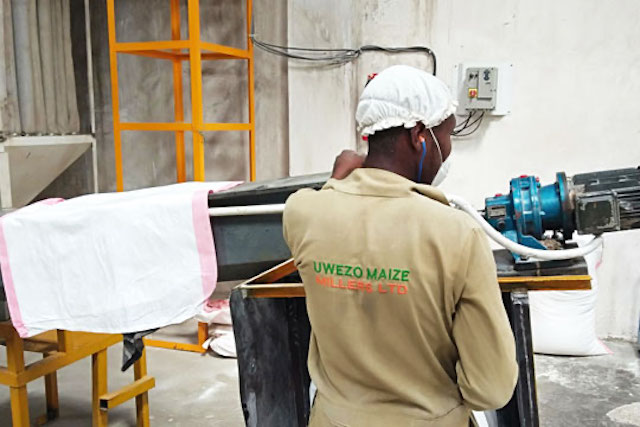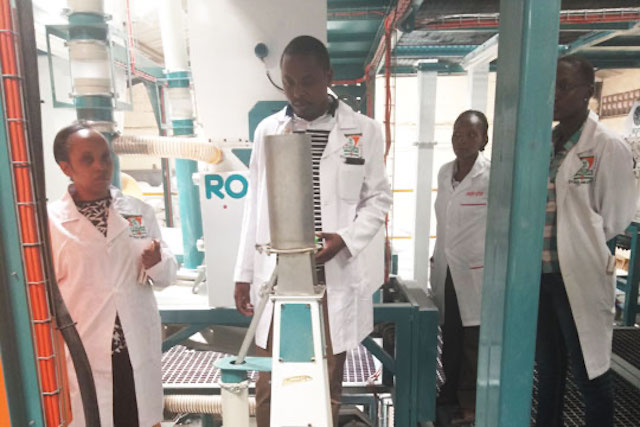Addressing Chronic Malnutrition Through Food Fortification
Chronic malnutrition is a widespread issue that has serious health impacts, particularly for children. When implemented in a business-friendly way, food fortification offers a relatively simple solution.

Food Fortification to Solve Malnutrition
There is a relatively simple solution to solve malnutrition if it can be implemented in a business-friendly way: Food fortification. That is the process of adding micronutrients to food, which can significantly improve health and well-being in communities with high levels of malnutrition, at an average cost of just $0.15 USD per person annually in developing countries. For this reason, many countries mandate the fortification of certain foods.
In Kenya, one in four children suffer from chronic malnutrition, which can lead to serious health consequences, such as anemia, blindness, and brain damage. In addition to its devastating impact on families, malnutrition limits a country’s economic potential, decreasing the productivity of its people and increasing healthcare costs. Yet in many places across Africa, actual fortification levels fall short, often because food processing companies lack the knowledge or ability to meet the requirements.
The supermarkets are strict on fortification, but once you have fortified and you know your flour is good quality, you can sell there.”
– Chief miller at Uwezo Millers
The Strengthening African Processors for Food Fortification (SAPFF) program – a partnership between TechnoServe, Partners in Food Solutions, and the Bill and Melinda Gates Foundation – is working with food companies in Nigeria, Kenya, and Tanzania to improve their capacity to produce and sell fortified foods for local markets.
Project SIMA, which complements SAPFF, targets small and mid-sized wheat and maize flour millers to increase their ability to meet micronutrient standards and comply with national requirements. Participating producers receive customized technical training and business advisory support to adopt cost-effective fortification practices, ultimately leading to improved maternal and child health outcomes and lowered rates of malnutrition.
Two mills in Kenya illustrate how this kind of transformative impact can be achieved through interventions that make business sense for food processors.
Utalii Millers is a mid-sized maize flour processor in Nakuru. When the mill first opened, the staff had problems managing the flour flow rate (the amount of flour output being dispensed) and premix dosing of its flour brand, “Faida”. Premix is a powdery blend that adds nutrients to the flour. It is important to get the right ratio of premix to flour, but this can be a challenge for smaller mills without the appropriate sensor technology.
“It was difficult to fit [together] the premix and the flour,” says Sylvester Otieno, the chief miller at Utalii. “I can set the doser according to the maize weight, but when the amount of maize changes or if there is a breakdown, the micro-feeder may add too much premix or none at all because there is no sensor.”

In 2019, staff from Utalii Millers attended TechnoServe’s two-day training on operations and food fortification. After the training, the Utalii owners decided to apply for a certificate of compliance from premix suppliers to ensure that the premix was micronutrient-compliant – a practice they never did before. The mill also adopted a new record management system that allowed it to maintain a proper inventory of its premix.
Today, Faida flour is now certified and micronutrient-compliant. These improvements have not gone unnoticed by the mill’s customers. “When it comes to marketing, the customers are now recommending our flour, saying it is good,” says Magret Mugure Wachira, the mill’s quality control officer.
Improved fortification also brightened business prospects for a smaller food processor, Uwezo Millers. After launching in 2012 with no food fortification process in place, the producers decided to become compliant in 2017 following a major expansion in production.
Our mill can now ensure that our consumers are getting the right amount of nutrients based on the national requirements and specifications.”
– Chief miller at Uwezo Millers
In 2019, TechnoServe provided training to Uwezo Millers on grain grading (the assessment and sorting of grain-based on quality) and mycotoxin management (the testing of grain for bacterial or fungal infestation). In addition to the training, the mill received a 50-50 matching grant by SIMA to procure a Buhler micro-feeder, enabling much more accurate dosing of the premix. This was a turning point for Uwezo. Today, thanks to an improvement in micronutrient content and quality, the mill has been allowed to sell at major supermarkets.
“The supermarkets are strict on fortification, but once you have fortified and you know your flour is good quality, you can sell there,” says the chief miller at Uwezo. “Initially we sold to wholesalers and retailers, but now our market has spread all over because our quality is better.”
After participating in Project SIMA, Uwezo is better equipped to deal with the challenges of food fortification. The chief miller says that the training taught them to be more accurate and precise when producing the fortified flour, and the mill now complies with national standards.
“I now can keep track of how much premix I am using in a day. I also know if I am overdosing or underdosing,” he reflects. “When I was using the other doser, I wasn’t able to tell how much premix I was using in kilograms. If I was overdosing, that was a waste of money. If I was underdosing, I wasn’t doing the right thing for our consumers. Our mill can now ensure that our consumers are getting the right amount of nutrients based on the national requirements and specifications.”



